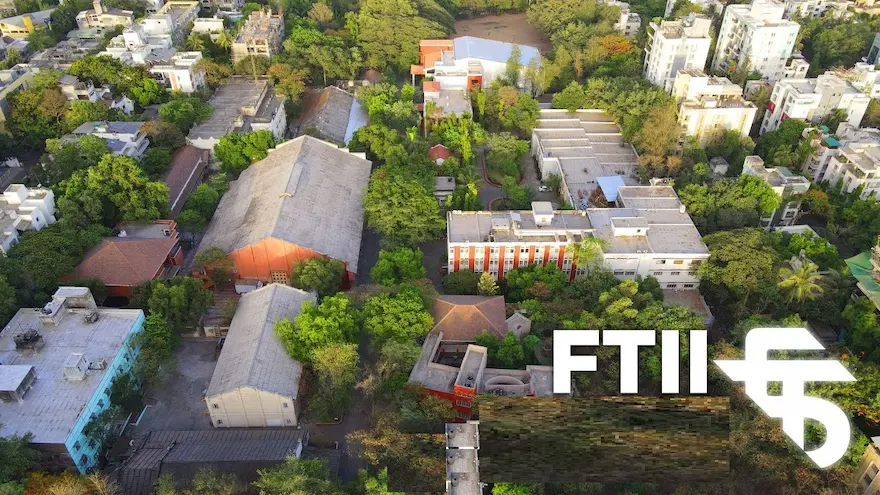
The controversy surrounding The Kerala Story and its National Award recognition is more than a flashpoint
The Kerala Story – In a bold and impassioned statement, students of the Film and Television Institute of India (FTII) have publicly condemned the decision to honour The Kerala Story at the 71st National Film Awards. Their protest isn’t just about a film, it’s about the soul of Indian cinema, the ethics of storytelling, and the dangerous consequences of state-endorsed narratives that, according to them, promote communal discord.
This blog explores the controversy surrounding The Kerala Story, the FTII students’ response, and the broader implications for artistic freedom and social responsibility in Indian filmmaking.
The Film That Sparked a Firestorm
The Kerala Story, directed by Sudipto Sen, claims to depict the radicalization of young women from Kerala who are allegedly recruited by ISIS. Marketed as a “true story,” the film stirred intense debate upon release, with critics accusing it of exaggerating facts and promoting Islamophobic tropes. The teaser’s claim that over 32,000 women were recruited was later retracted after legal challenges.
Despite or perhaps because of its polarizing nature, the film was awarded Best Film and Best Director at the National Film Awards, triggering outrage among many in the film fraternity.
FTII Students Speak Out
The FTII Students’ Association, led by President Geetanjali Sahu and General Secretary Barsha Dasgupta, issued a scathing statement condemning the awards. They described the film as “not a film, it is a weapon,” accusing it of vilifying the Muslim community and misrepresenting the state of Kerala.
Their statement reads like a manifesto for ethical cinema:
“We refuse to accept that our craft, the cinema we believe in and are training to make, should be reduced to a tool of state-sponsored communalism. We refuse to accept that Islamophobia is now award-worthy. And we refuse to be silent as the industry we hope to enter is being reshaped to reward lies, bigotry, and fascist ideology.”
This isn’t just a rejection of one film, it’s a rejection of a trend that, in their view, threatens the integrity of Indian cinema.
Cinema as a Tool of Influence
The students argue that cinema is not neutral. It’s a powerful medium that shapes public perception, influences political discourse, and can either foster empathy or incite division. When a government-endorsed body elevates a film accused of spreading misinformation and communal hatred, it sends a message: this narrative is acceptable, even commendable.
They warn that such recognition legitimizes violence, scripts future lynching, and normalizes political othering.
Kerala’s Response and Cultural Context
Kerala, known for its secular traditions and high literacy rates, has historically resisted communal polarization. The film’s portrayal of the state as a breeding ground for terrorism was met with widespread protests and legal scrutiny. Even Kerala’s Chief Minister Pinarayi Vijayan criticized the film, calling its award a celebration of “cultural corruption”.
Students from Kerala at FTII expressed deep hurt over the film’s depiction of their home state. They emphasized that the narrative misrepresents the people of Kerala and undermines the values of communal harmony and resistance that the state stands for.
The Role of Film Institutions
FTII is not just a film school, it’s a crucible for India’s future storytellers. The students’ protest reflects a broader concern about the kind of cinema being promoted and the values it embodies. They fear that the industry is being reshaped to reward propaganda over truth, spectacle over substance, and division over unity.
Their statement is a call to action for filmmakers, critics, and audiences to uphold the principles of honest storytelling and resist the politicization of art.
The Ethics of Awarding Controversial Films
Awarding The Kerala Story raises uncomfortable questions:
- Should films accused of spreading communal hatred be celebrated?
- What responsibility do award bodies have in shaping cultural narratives?
- Can art be separated from its political impact?
These questions don’t have easy answers, but they demand serious reflection especially in a country as diverse and complex as India.
A Student-Led Movement for Accountability
The FTII students’ protest is part of a growing movement within India’s creative community to hold institutions accountable. They’re not just critiquing a film, they’re challenging the systems that elevate certain narratives while silencing others.
Their courage to speak out, despite potential backlash, reflects a deep commitment to the values of inclusivity, truth, and artistic integrity.
Conclusion: The Future of Indian Cinema
The controversy surrounding The Kerala Story and its National Award recognition is more than a flashpoint, it’s a mirror reflecting the tensions within Indian society and its cultural institutions. As FTII students remind us, cinema is not just entertainment. It’s a reflection of who we are, what we value, and the kind of future we envision.
Their protest is a plea to preserve the sanctity of storytelling, to resist the lure of propaganda, and to ensure that Indian cinema remains a space for truth, empathy, and artistic courage.
Jennifer Lopez Skirt Slip Sparks Cheers, Not Cringe: A Masterclass in Confidence and Charisma
1 thought on “‘The Kerala Story’ – FTII Students Challenge National Recognition of the Movie”
Comments are closed.